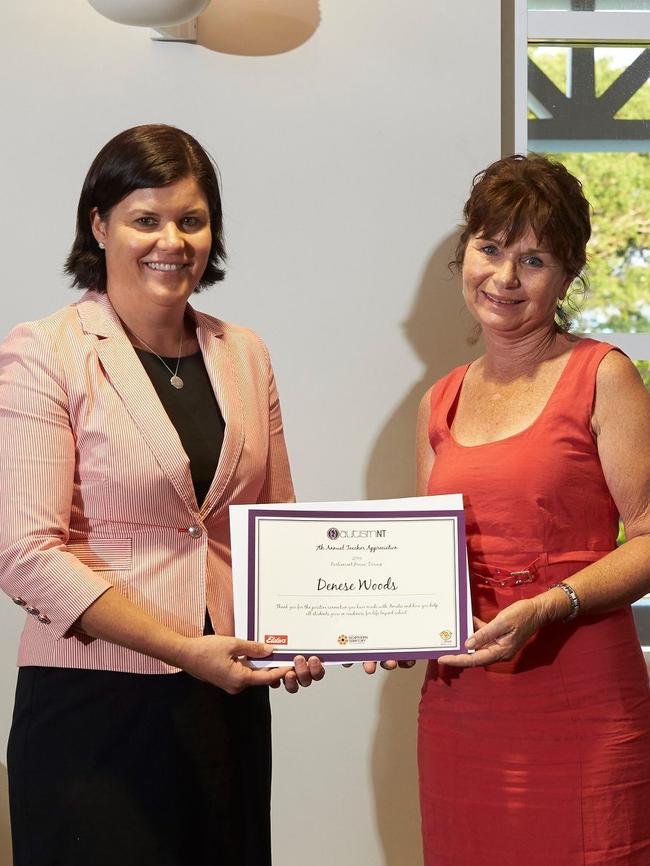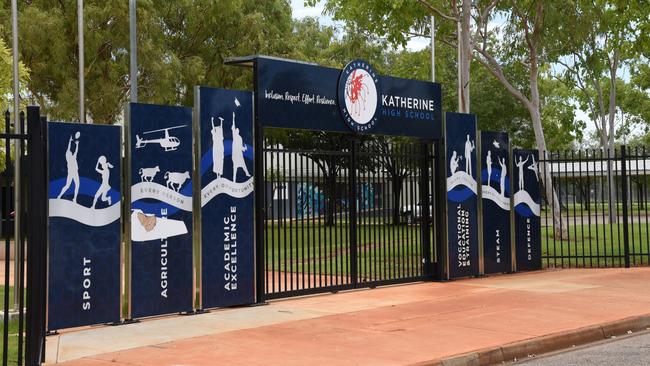Top End teacher Denese Woods psychologically scarred by threats from students loses Supreme Court compensation appeal
A Top End teacher scarred from the threats from her teenage students has taken a workers’ compensation battle all the way to the NT Supreme Court of Appeal.

News
Don't miss out on the headlines from News. Followed categories will be added to My News.
A Top End teacher who was repeatedly exposed to violence and threats from her teenage students has lost a major workers’ compensation appeal.
The full bench of the Supreme Court heard Territory high school teacher Denese Woods suffered a debilitating “mental injury” following threats of violence from students at both Katherine High School in 2017 and at Palmerston College in 2020.
The court heard Ms Woods had to take a month off work in 2017 after being exposed to “traumatic and violent interactions with students”.
She was able to get back to the classroom after receiving benefits under the Return to Work Act.
Three years later when she was again threatened by students in Palmerston, Ms Woods wanted to access compensation for the cumulative impact of the two psychological injuries.
Under the Return to Work Act, if a worker suffers from a permanent work-related injury they are able to access a lump-sum payment based on the severity of the ‘whole person impairment’.

However if the whole person impairment is below 15 per cent, they can only access a lesser sliding scale of compensation.
Ms Wood’s psychologist estimated the toll of the two incidents resulted in a whole person impairment of 11 per cent for each of the injuries.
The Education Department accepted liability and paid her more than $35,000 in compensation based on a 10 per cent whole person impairment.
However Ms Woods argued this was half of the compensation she was owed, stating she had suffered a 22 per cent whole person impairment when taking into account the total impact of the two incidents.

The Top End teacher took her fight to the Supreme Court, but Justice Trevor Riley said an “apparent anomaly in the legislative regime” meant she was entitled to less compensation from the two injuries, compared to a payout for a single incident with a similar cumulative impact.
Ms Woods appealed this decision to the full bench of the Supreme Court, arguing a “whole person approach” to compensation meant it should not matter if her impairment was caused by one, or several injuries.
She said by approaching compensation on an ‘injury by injury approach’ could result in ‘harsh, capricious or unjust’ payments to workers who suffered multiple incidents, as it would not take into account the totality of their trauma.

Ms Woods argued this approach meant there would be a ‘discount rate’ for subsequent injuries.
However, in December the full bench of the Supreme Court of Appeal dismissed Ms Wood’s application finding there was no error in the original compensation calculation.
The Justices ruled Ms Wood’s approach would leave employers on the hook from impairments caused by previous injuries from years ago — even those from unrelated previous workplaces.
“It does not follow that a worker is entitled to compensation from their present employer for the totality of their permanent impairment arising from multiple injuries sustained at different times, and for which compensation has been paid,” their decision said.
More Coverage
Originally published as Top End teacher Denese Woods psychologically scarred by threats from students loses Supreme Court compensation appeal





